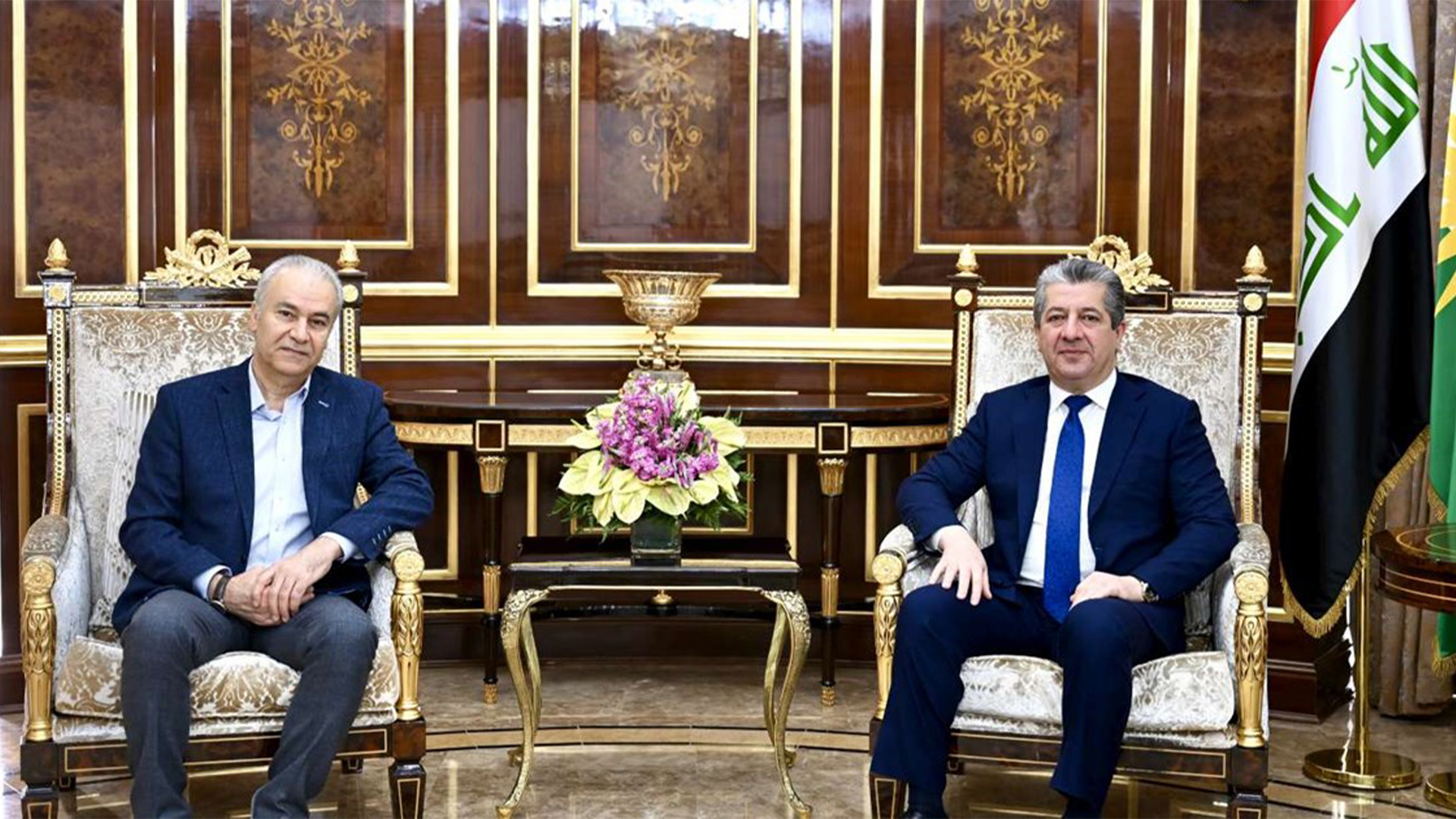PM Masrour Barzani Welcomes Kurdish Writer and Poet Jan Dost
PM Masrour Barzani met renowned Kurdish writer Jan Dost, discussing Kurdistan's cultural landscape and the role of intellectuals in advancing Kurdish literature. The PM reaffirmed the KRG's support for cultural and artistic expression.

ERBIL (Kurdistan24) – Kurdistan Region Prime Minister Masrour Barzani on Wednesday, received renowned Kurdish writer and poet Jan Dost in Erbil, in a meeting that placed a strong emphasis on the cultural landscape of Kurdistan and the growing responsibilities of intellectuals in advancing Kurdish literature and identity.
During the meeting, both sides discussed the current state of cultural activity across the Kurdistan Region, underlining the essential role of writers, poets, and scholars in enriching the Kurdish language, nurturing literary creativity, and elevating the broader cultural scene.
Prime Minister Barzani expressed his appreciation for Jan Dost’s longstanding literary contributions, praising his work. He reaffirmed the Kurdistan Regional Government’s commitment to supporting culture, arts, and literary expression, while ensuring an environment that guarantees freedom of thought, creativity, and cultural engagement.
Jan Dost is a celebrated Kurdish poet, novelist, short story writer, and translator from Kobani in western Kurdistan (northern Syria), born in 1965. Over the decades, he has emerged as one of the most influential Kurdish literary voices.
His distinguished career has earned him multiple prestigious awards, including:
Kurdish Short Story Award in Syria (1993)
Kurdish Poetry Award at the Kurdish Poetry Festival in Germany (2012)
Oriental Book Award (2013) for translating Kurdish stories in the collection Ashes of the Stars
Damascus Prize for Thought and Creativity (2013) presented by Damascus magazine in London for his book Ashes of the Stars
Hussein Arif Award (2014) at the annual Glawez Festival in Sulaymaniyah, Kurdistan Region
Dost’s works—spanning poetry, fiction, and translation—continue to influence Kurdish readers and writers across different parts of Kurdistan, contributing to a richer cultural memory and a stronger literary tradition.